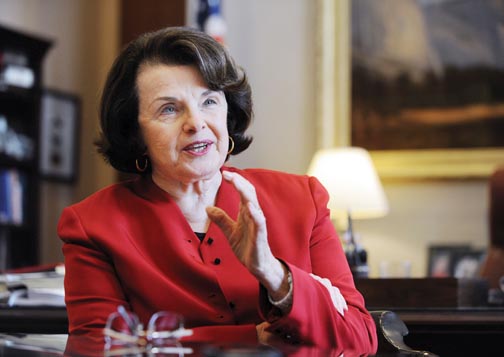Following the tragedy that occurred at Sandy Hook Elementary School in Newtown, Connecticut, the nation has been in an uproar about gun control. The deaths of the 20 children and six teachers that occurred a little more than a week before Christmas has taken center stage in discussions among the public, politicians and lawmakers.
Calif. Sen. Dianne Feinstein, known for her strict stance on gun control, has become a forerunner in this reemerged debate on the issue.
Feinstein is no stranger to gun violence, having ascended to the seat of San Francisco mayor in 1978 after Mayor George Moscone and Supervisor Harvey Milk were both gunned down in City Hall. Feinstein also authored the 1994 ban on assault weapons, signed into effect by former President Bill Clinton.
In the wake of Sandy Hook, Feinstein released a statement saying, “I am horrified and incensed by today’s tragedy in Connecticut. These massacres don’t seem to stop—they continue on and on … As I have said many times before—and now repeat in the wake of yet another tragedy—weapons of war don’t belong on our streets or in our theaters, shopping malls and, most of all, our schools.”
Feinstein’s statement also said she hoped and trusted “in the next session of Congress there will be sustained and thoughtful debate about America’s gun culture and our responsibility to prevent more loss of life.”
Feinstein had already been working on an updated revision of the Assault Weapon Ban—which expired in 2004—prior to the Sandy Hook shooting, but the events at the elementary school added a renewed sense of urgency to enforce stricter regulations on purchasing and owning guns.
Feinstein’s updated bill will crack down on the sale, production, transfer and importation of 100 specifically named firearms, including certain semiautomatic rifles, handguns and shotguns. It will also ban the production of any ammunition magazines which hold more than 10 rounds. Provisions for existing gun owners and game hunters have been factored into the bill as well.







